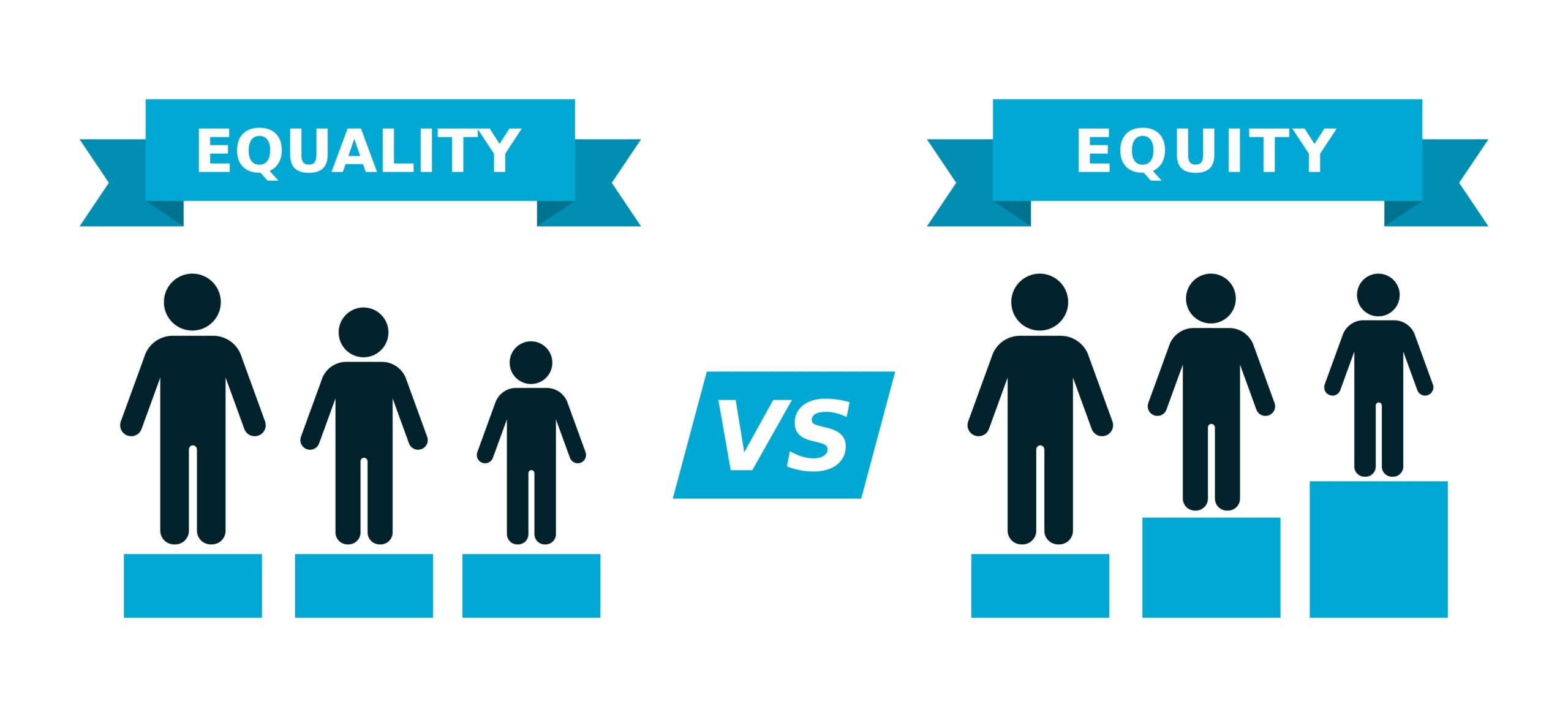
The words equity and equality both originate from the Latin root aequus, meaning “even,” “fair” or “equal.” From this root, Latin gave rise to aequitas (which became equity) and aequalitas (which became equality). While the two English terms share a common linguistic ancestor and some conceptual overlap, they carry distinct nuances — even in Latin. The divergence in meaning was baked in early, reflecting different ways of thinking about fairness and balance. (Hat tip, Merriam-Webster.)
In modern English usage, equality refers to the uniform distribution of resources or opportunities — everyone receives the same treatment regardless of circumstance. Equity, on the other hand, acknowledges that fairness sometimes requires different treatment; it’s about tailoring resources and support to individual needs to achieve comparable outcomes. This distinction underscores a key policy principle: Sameness does not always lead to fairness.
